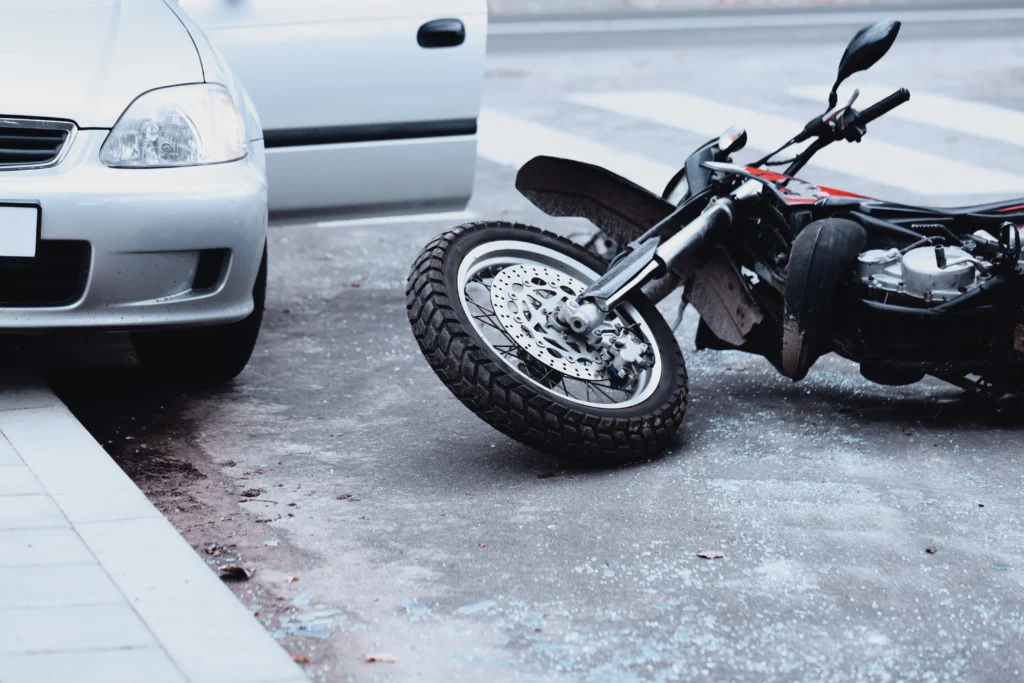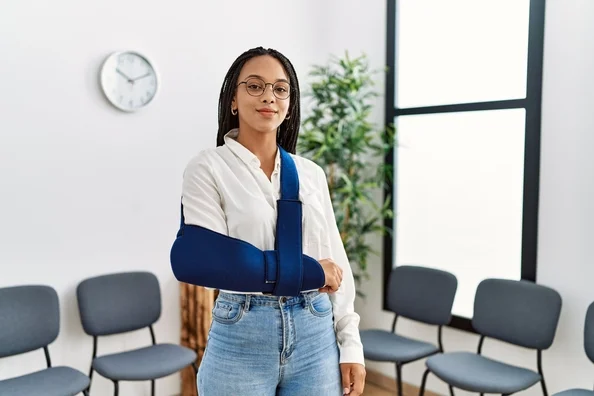Trusted Seattle Traumatic Brain Injury Attorneys Fighting for Justice
A traumatic brain injury (TBI) can change your life in seconds. One moment you’re navigating the streets of Seattle, and the next, a violent collision or sudden fall leaves you facing an uncertain future. From car crashes on I-5 to slip and fall incidents on rain-slicked sidewalks downtown, TBIs occur more often than most people realize. The consequences can be devastating: memory loss, cognitive impairment, emotional instability, and in the most severe cases, permanent disability.
At Bernard Law Group, we help Seattle residents and their families recover from these life-altering events. Our team has decades of experience holding negligent drivers, property owners, and corporations accountable for brain injuries across King County. If someone else’s carelessness caused your injury, you deserve answers, support, and full financial compensation under Washington law.
According to the Centers for Disease Control and Prevention, over 220,000 TBI-related hospitalizations occur annually in the United States. Many of these involve motor vehicle collisions, falls, and violent impacts, all common causes of traumatic brain injuries in urban areas like Seattle. The consequences are not just medical; they are emotional, financial, and deeply personal. That’s why it’s critical to understand your legal rights and work with a law firm that knows how to protect them.
If you or a loved one suffered a traumatic brain injury in Seattle, contact Bernard Law Group today at (206) 312-3908 or through our Seattle personal injury contact page. We offer free consultations and charge no legal fees unless we win your case.
Common Causes of Traumatic Brain Injuries in Seattle
Traumatic brain injuries in Seattle often result from violent, high-impact incidents that disrupt brain function. Whether caused by a rear-end crash on I-5, a fall on unsafe stairs in a Capitol Hill apartment, or a bicycle accident on the Burke-Gilman Trail, these injuries can happen in an instant but lead to years of recovery. Understanding what causes a TBI is crucial not only for prevention but also for pursuing accountability through a legal claim. In Washington, victims have the right to seek compensation when their injury was caused by someone else’s negligence.
The Centers for Disease Control and Prevention notes that falls, motor vehicle crashes, and assaults are the three most common causes of TBIs nationwide. In a dense and fast-paced city like Seattle, each of these risk factors is amplified by traffic congestion, aging infrastructure, and an overburdened healthcare system. To learn more about the national scope of TBI incidents, the CDC provides an extensive traumatic brain injury resource center.
Motor Vehicle Accidents in Seattle Cause Thousands of TBIs Each Year
Car accidents remain a leading cause of traumatic brain injuries in Seattle. The force generated during even a moderate-speed crash is often enough to cause the brain to strike the inside of the skull, resulting in a concussion, brain bleed, or more serious damage such as diffuse axonal injury.
According to the Washington Traffic Safety Commission, King County consistently reports some of the highest rates of serious injury crashes in the state, many of which involve head trauma. These collisions happen on roadways like I-5, Aurora Avenue North, and the Alaskan Way Viaduct, where congestion and driver negligence intersect.
Rear-End Collisions and Whiplash-Induced Brain Injuries
Rear-end collisions are especially dangerous because of the sudden acceleration-deceleration motion they create. This whiplash effect can cause the brain to bounce within the skull, leading to a closed-head injury or mild traumatic brain injury that may not appear on standard imaging.
The National Highway Traffic Safety Administration explains how crash mechanics impact the brain in its injury prevention portal. Victims often experience dizziness, confusion, and difficulty concentrating, symptoms that may be dismissed unless properly evaluated by a neurologist.
Pedestrian and Bicycle Accidents Along Urban Corridors
Seattle’s walkability and cycling infrastructure, while generally praised, do not eliminate the risks of head injury for vulnerable road users. Many traumatic brain injuries occur when a pedestrian is struck in a crosswalk or when a cyclist is sideswiped by a distracted driver. Intersections like those at Eastlake Avenue and Pine Street have become notorious for dangerous conflicts between vehicles and pedestrians.
The Governor’s Highway Safety Association has found that pedestrian fatalities and head injuries are increasing nationwide, especially in urban centers like Seattle. Cyclists face similar risks, particularly where dedicated lanes are absent or poorly maintained.
Falls on Public and Private Property Are a Major Cause of TBIs in Seattle
Falls are the most common cause of traumatic brain injury across all age groups, and Seattle’s built environment contributes to many of them. Uneven sidewalks in Queen Anne, wet floors in downtown office buildings, and poorly lit stairwells in South Seattle apartments all pose serious dangers.
Property owners in Washington have a legal duty to maintain reasonably safe premises. When they fail to repair defects or warn of hazards, they may be held liable under Washington premises liability law. The Washington State Bar Association provides general legal information on how negligence applies to personal injury claims involving property hazards.
Dangerous Stairways and Entryways in Older Buildings
Many buildings in Seattle were constructed decades ago and lack modern safety upgrades. Broken handrails, crumbling steps, and narrow walkways can easily cause a person to trip and fall, leading to blunt force trauma to the head.
The Centers for Disease Control and Prevention reports that traumatic brain injuries from falls are especially common in people over 65, a population that is growing rapidly in neighborhoods like Ballard and West Seattle. For landlords and property managers, failure to address such hazards may lead to substantial liability.
Slippery Surfaces and Inadequate Winter Maintenance
Seattle’s wet climate creates nearly year-round slip hazards. Rain, algae buildup, and poorly drained sidewalks turn simple walkways into potential danger zones. When commercial property owners fail to apply anti-slip materials or post warning signage, they endanger everyone who visits.
The National Floor Safety Institute recommends routine inspections and slip-resistance testing to reduce the risk of injury. Business owners who neglect these standards can be held accountable when their negligence results in a TBI.
Worksite Accidents Involving Head Trauma
Construction zones, warehouse facilities, and even corporate offices in Seattle pose risks of traumatic brain injury. Falling objects, equipment malfunctions, and unsafe scaffolding all contribute to occupational TBIs.
The Occupational Safety and Health Administration outlines strict safety protocols for employers to prevent head injuries. When those regulations are ignored, whether by failing to provide hard hats or neglecting to secure materials, employers and third parties may be liable.
Construction Sites and Falling Object Hazards
Seattle’s construction boom has resulted in dense worksite activity across neighborhoods like Capitol Hill, the Central District, and Belltown. Crane operations and high-rise construction projects increase the likelihood of falling tool or material incidents, many of which lead to traumatic brain injuries.
The National Institute for Occupational Safety and Health offers research and resources on preventing fall- and impact-related injuries at job sites.
Office and Warehouse Slip Hazards
Even in less hazardous industries, workplace injuries still occur. Slipping on a freshly mopped floor in an Amazon warehouse or tripping over exposed wiring in a Pioneer Square office can cause a person to fall and hit their head. In these cases, workers’ compensation may not be the only available remedy, especially if third-party contractors are at fault.
Assaults and Violence-Related Incidents
Another frequent cause of TBIs in Seattle is intentional violence. Assaults, especially those involving blunt objects or physical altercations, can lead to concussions, skull fractures, or penetrating brain trauma.
The National Institutes of Health confirms that assault-related TBIs are a significant public health concern. These injuries often occur in domestic violence cases, bar fights, or altercations at public events. When negligent security plays a role, such as in under-policed clubs or poorly managed apartment complexes, victims may have a claim against the property owner as well.
Symptoms and Long-Term Effects of Traumatic Brain Injuries in Seattle
The symptoms of a traumatic brain injury are as varied as the people who suffer them. For many Seattle residents, a TBI is not just a temporary disruption but a life-changing condition that affects every aspect of daily life. Some people recover within weeks with rest and therapy. Others require years of rehabilitation and never return to their pre-injury abilities. What makes traumatic brain injuries especially complex is that symptoms may not appear immediately after an incident. In fact, many victims feel fine after a crash or fall, only to experience confusion, headaches, and memory loss days later.
Recognizing early signs and seeking immediate medical evaluation is critical. The Mayo Clinic’s TBI overview explains that prompt diagnosis can help limit long-term damage. For Seattle patients, facilities such as Harborview Medical Center and the UW Medicine system offer advanced imaging and neurological assessments, but delays in care remain a persistent issue, especially for those without health insurance or living in under-resourced neighborhoods.
Physical Symptoms of a TBI Range From Subtle to Severe
The physical toll of a brain injury can be immediate or delayed. Victims often report symptoms that interfere with basic movement, coordination, and physical comfort. While mild TBIs may resolve with time and rest, moderate to severe cases often require surgical intervention, extended hospitalization, and continuous rehabilitation.
Headaches and Dizziness Signal Possible Intracranial Trauma
Persistent headaches are one of the most common physical symptoms of a traumatic brain injury. Dizziness, light sensitivity, and balance problems frequently accompany these headaches and may indicate swelling or bleeding in the brain.
The National Institute of Neurological Disorders and Stroke offers detailed information on the causes of post-traumatic headaches and the importance of neuroimaging in evaluating severity. In Seattle, patients experiencing these symptoms should visit trauma centers like MultiCare Tacoma General Hospital or Swedish First Hill for urgent assessment.
Nausea, Fatigue, and Visual Disturbances Are Early Warning Signs
After a blow to the head, many victims report nausea and vomiting, especially when combined with disorientation or blurred vision. These signs may indicate increased intracranial pressure or hemorrhaging. Fatigue is also a frequent complaint and may persist for weeks after the incident.
According to the Centers for Disease Control and Prevention, these early symptoms should never be ignored, especially in high-risk groups such as children, the elderly, and individuals taking blood thinners.
Cognitive Impairment Is One of the Most Debilitating Consequences
For many Seattle TBI victims, the most disruptive consequences of a brain injury are cognitive. This includes a decline in memory, attention span, and problem-solving ability. These effects often interfere with a person’s ability to return to work, complete daily tasks, or maintain independence.
Memory Loss and Attention Problems Are Common Among TBI Survivors
Short-term memory problems are among the most persistent effects of a traumatic brain injury. Victims often struggle to recall recent conversations, keep appointments, or perform tasks they once found simple.
The Brain Injury Association of America provides educational materials and support resources for individuals suffering from memory loss and cognitive fatigue. In Seattle, rehabilitation programs at facilities such as EvergreenHealth’s Center for Rehabilitation offer cognitive therapy to help rebuild executive function.
Language and Communication Difficulties May Emerge Over Time
Another common issue is aphasia, the inability to speak, read, or understand language clearly. Even those with mild TBIs may find that they “lose their words” mid-sentence or struggle to follow conversations. These difficulties are not only frustrating but can also impact relationships and job performance.
Speech-language therapy, guided by the American Speech-Language-Hearing Association, is a vital part of many long-term TBI recovery plans in Seattle and beyond.
Behavioral and Emotional Changes Disrupt Relationships and Mental Health
A traumatic brain injury not only affects how a person thinks and feels it can also reshape who they are. Loved ones often describe personality changes, mood swings, and increased irritability. These shifts are linked to damage in the brain’s frontal lobe, the area responsible for impulse control and emotional regulation.
Mood Swings, Depression, and Anxiety Are Common After a TBI
Mental health symptoms such as depression, anxiety, and emotional instability are widely reported among TBI survivors. These symptoms can emerge weeks or months after the initial injury and may be mistaken for unrelated psychological conditions.
The American Psychological Association emphasizes the connection between brain trauma and long-term emotional health. In Seattle, programs such as UW Psychiatry’s Rehabilitation Psychology division offer targeted counseling and medication strategies for TBI patients.
Loss of Inhibition and Aggressive Behavior May Strain Relationships
Victims may experience heightened aggression, inappropriate behavior, or difficulty controlling impulses, symptoms that put a strain on family and workplace relationships. These issues often go undiagnosed unless close friends or family report them to physicians.
Behavioral therapy and family counseling are critical components of recovery. The National Rehabilitation Information Center offers resources to help caregivers and victims address these challenges as part of a comprehensive rehabilitation plan.
Long-Term Disability, Financial Strain, and Social Isolation
The long-term consequences of a traumatic brain injury can include permanent disability, job loss, and economic hardship. Some TBI victims require in-home care, mobility aids, and occupational retraining to function in daily life. The Centers for Medicare & Medicaid Services reports that TBI care may cost hundreds of thousands of dollars annually, and most insurance plans do not fully cover this level of treatment.
In Seattle, victims often face lengthy waitlists for neurological specialists, as well as rising out-of-pocket costs for rehabilitation, cognitive therapy, and mental health care. Social isolation is also a major concern, particularly for individuals who lose the ability to drive or participate in community activities.
Who Can Be Held Legally Responsible for a Traumatic Brain Injury in Seattle
When a traumatic brain injury occurs, the consequences are devastating, but in many cases, they are also preventable. In Seattle, TBIs often result from negligent behavior, unsafe environments, or defective products. Identifying who is at fault is a critical step in securing financial recovery for medical bills, lost income, and long-term care needs. Under Washington law, injury victims have the right to pursue civil claims against any person or entity whose negligence caused or contributed to their injury.
Determining legal liability in a traumatic brain injury case requires more than just pointing to a cause. It involves a detailed investigation, documentation of evidence, and a thorough understanding of state statutes. The Washington State Bar Association offers foundational information on tort law and personal injury principles, but for TBI victims, professional legal representation is essential to navigating these complex claims.
Negligent Drivers Are Frequently Liable in Seattle Car Accident Cases
Motor vehicle crashes are among the leading causes of TBIs in Seattle, and in many of these cases, a negligent driver is to blame. Whether the at-fault motorist was speeding, distracted, impaired, or simply failed to yield, their actions may constitute a breach of duty under Washington’s traffic laws.
The Washington Department of Licensing outlines rules that all drivers must follow, including speed limits, right-of-way obligations, and prohibitions against texting while driving. Violating any of these rules may result in civil liability when a crash causes serious injury.
Distracted and Impaired Driving Are Common in Urban Traffic
Seattle’s congested roads from Rainier Avenue to the Mercer corridor are frequently the site of distracted driving accidents. Drivers who glance at their phones, operate GPS apps, or use voice commands while driving may only be distracted for a second, but that is all it takes to cause a head injury.
The Washington Traffic Safety Commission reports that distracted driving contributes to over 25% of serious crashes across King County. Impaired driving, including drugged or drunk driving, is also a major factor and remains one of the most preventable causes of life-altering injuries.
Rideshare and Commercial Vehicle Operators Can Also Be Liable
When a brain injury is caused by a collision involving a rideshare vehicle, delivery truck, or shuttle, the liability may extend beyond the driver to include the company. Uber, Lyft, Amazon, and other corporations may be required to compensate victims under commercial insurance policies.
The National Association of Insurance Commissioners provides breakdowns of how rideshare and commercial auto liability policies function in complex accident scenarios. Proving corporate liability requires access to app logs, dash cam footage, and driver work records, which is best pursued by an experienced personal injury law firm.
Property Owners Can Be Held Accountable for Unsafe Premises
Many traumatic brain injuries in Seattle occur on private or commercial property. Slip and falls, staircase accidents, and trip hazards are common in apartment buildings, stores, hotels, and restaurants. Under Washington’s premises liability law, property owners must maintain safe conditions for all lawful visitors.
According to RCW 4.24.210, landowners owe a duty of care to prevent injuries caused by known or foreseeable hazards. When a property owner fails to repair a broken handrail, mop up a spill, or fix uneven flooring, they may be responsible for any resulting head injuries.
Seattle Landlords Must Address Structural Hazards
Seattle’s aging housing stock presents real dangers to tenants and visitors. Many apartment complexes in neighborhoods like the University District, Capitol Hill, and Rainier Valley lack proper lighting, have deteriorating staircases, or feature icy walkways in the winter.
The Washington State Attorney General’s Landlord-Tenant Guide sets out the responsibilities of property owners to maintain safe environments. When landlords ignore complaints or defer repairs, they increase their exposure to personal injury lawsuits, especially when those lapses lead to traumatic brain injuries.
Businesses Can Be Sued for Dangerous Conditions and Inadequate Warnings
Retail stores, office buildings, and restaurants must also protect customers from foreseeable injury risks. If a person slips on a wet grocery store floor, falls from a curb that lacks a warning sign, or trips on exposed wiring in an office hallway, the business may be found negligent.
The National Floor Safety Institute recommends specific safety standards for commercial properties, including high-traction flooring, visible signage, and regular maintenance checks. Businesses that fail to meet these standards face legal exposure when guests are injured.
Construction Sites and Employers May Be Liable for Workplace TBIs
Work-related head injuries are common in Seattle, particularly in construction, delivery, and manufacturing industries. While workers’ compensation may cover some medical costs and lost wages, additional third-party liability claims can often be pursued when negligence by a subcontractor, equipment provider, or property manager contributes to the injury.
The Washington State Department of Labor & Industries administers workers’ comp, but its payouts are limited. When the brain injury is caused by faulty equipment or a negligent third party, injured workers may seek full compensation through a separate civil action.
Failure to Follow OSHA Regulations May Constitute Negligence
The Occupational Safety and Health Administration outlines clear requirements for fall protection, hard hat use, and site safety. If a contractor or supervisor disregards these rules and a worker suffers a traumatic brain injury, a personal injury claim may follow.
Construction site accident claims often rely on incident reports, expert testimony, and eyewitness statements. Prompt legal intervention is key to preserving this evidence before it disappears or is altered.
Government Agencies Can Be Sued for Infrastructure Failures
In certain cases, a city, county, or state agency may bear responsibility for a TBI. If a dangerous sidewalk, broken streetlight, or poorly marked crosswalk contributed to the injury, the government may share in the liability.
Under Washington law, injury claims against government entities must follow strict notice procedures. According to the Washington State Office of Risk Management, a tort claim must be filed at least 60 days before a lawsuit is initiated. This requirement makes it especially important to speak with a personal injury attorney early in the process.
Poor Road Maintenance and Missing Traffic Signals Cause Injury
Seattle’s infrastructure is often inconsistent, especially in areas under construction or near older neighborhoods. When a TBI occurs due to poor road design, a hidden drop-off, or missing signage, the city or its contractors may be found at fault.
The Federal Highway Administration publishes road safety guidelines, including minimum standards for pedestrian visibility, curb design, and roadway lighting. Violations of these standards can serve as powerful evidence in traumatic brain injury claims.
Call Our Seattle Traumatic Brain Injury Lawyers Today
If you or someone you love has suffered a traumatic brain injury in Seattle, you don’t have to face the future alone. At Bernard Law Group, we understand how devastating a TBI can be. The physical pain, the emotional strain, the medical bills, and the uncertainty about your recovery can feel overwhelming. That’s why our legal team is here to fight for your rights, hold negligent parties accountable, and help you secure the full compensation you deserve under Washington law.
Whether your injury was caused by a car crash on I-5, a fall in a poorly maintained building, or a collision with a distracted rideshare driver, we are ready to take action. Our attorneys have decades of experience representing TBI victims in Seattle and throughout King County. We work with medical experts, accident investigators, and life care planners to build strong, evidence-backed claims that get results.
You pay nothing unless we win. There are no upfront legal fees, and your initial consultation is completely free. We will review your case, explain your legal options, and help you take the next step toward justice and recovery.
Call Bernard Law Group today at (206) 312-3908 or contact us through our secure online form. Let our Seattle traumatic brain injury attorneys help you rebuild your life after a serious injury.
Practice Areas
Trust Us With Your Personal Injury Claim
If you or a loved one have been injured, Bernard Law Group will fight for you every step of the way. We will give our all to secure the compensation you rightfully deserve.
Contact usfor a free consultation.
Phone: (206) 312-3908









